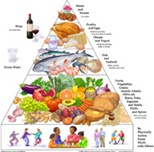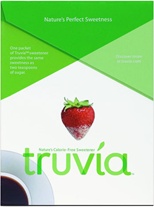The Role of Carbohydrates in Diabetes
The Role of Carbohydrates In Diabetes
Eating the proper amount of nutritious carbs is very important for people with diabetes.
Carbohydrate-rich foods like vegetables, grains, and beans should account for the vast majority of our daily diets. These foods are loaded with healthy sugars, which provide our bodies with the calories of energy they need to function properly throughout the day. Carbohydrates are essential for everyone, but they can be challenging for diabetics to understand Ð especially when diabetics know that limiting their carbohydrates can help them better manage their diabetes.
HereÕs a brief overview of how carbohydrates work and how you can eat healthy carbohydrates even as a diabetic:
Carbohydrates and blood glucose levels
Carbohydrates are foods that are high in sugars and starches and give the body energy to function. ItÕs important for individuals to eat about 275 grams of carbohydrates a day, which amounts to about 50 to 60 percent of total food consumption, in order to function properly. Keep in mind that the body not only needs energy to exercise and help you get through your normal daily activities, but energy also helps the body automatically:
Not all carbohydrate-rich foods interact with the body in the same way. Some foods cause blood glucose levels to increase more rapidly others, even when different foods have the very same amount of carbohydrates. The amount by which a carbohydrate-rich food causes the blood glucose level to increase is measured on the Glycemic index. Foods with high rankings on the Glycemic index cause higher blood glucose spikes and, therefore, are harder for the diabetic body to process.
How carbohydrates are processed
Carbohydrates are processed when the salivary glands, the stomach, and the small intestines release enzymes that break down different carbs into the simplest sugars like glucose, fructose (fruit sugar), galactose (milk sugar), etc. Then the pancreas releases insulin into the bloodstream to help the bodyÕs cells break the sugars down and convert them into usable energy and cell building material.
down different carbs into the simplest sugars like glucose, fructose (fruit sugar), galactose (milk sugar), etc. Then the pancreas releases insulin into the bloodstream to help the bodyÕs cells break the sugars down and convert them into usable energy and cell building material.
Remember: carbohydrates are different forms of sugars. In a non-diabetic, the pancreas releases the right amount of insulin to convert the exact amount of glucose. However, in a diabetic, the pancreas either doesnÕt secrete enough insulin (if at all) or the bodyÕs cells are not as sensitive to the insulin as they should be. This means that all of the available insulin is not used to convert all the glucose in the bloodstream.
When insulin does not break down and convert all of the glucose from the carbohydrates that a diabetic has consumed, blood glucose levels remain elevated. Elevated blood glucose levels can be toxic to the body in many different ways; they stress the kidneys, can increase blood pressure, can lead to diabetic neuropathy, and so much more. For these reasons, it is very important for diabetics to find ways to control their blood glucose levels Ð keeping their glucose level in the normal range as determined by their physician.
Controlling blood glucose levels
There are a variety of ways to control blood glucose levels, including:
- Exercise– exercise can help diabetics to lose weight and decrease blood sugar levels significantly as well.
- Medications– medications are an important treatment element for most diabetics, but even with medications, the body does not produce the right amount of insulin at the right time for the specific amount of sugars consumed
- Nutrition– nutrition plays a very major role in blood glucose level control.
While diabetics should not eliminate carbohydrates from their diets, they should be aware of the types and quantities of carbohydrates they consume. It is wise to consume carbohydrates that have low Glycemic index rankings and high levels of nutritional value
There are alternatives to all foods that have high Glycemic index rankings (1 Ð 100) and diabetics should become aware of these alternatives in order to make wise food selections. For example, white bread has a Glycemic index of about 95. Alternatively, whole grain pumpernickel bread has a Glycemic index ranking of 50 Ð nearly half as much as white bread Ð and is loaded with more vitamins and minerals that are good for the body than white bread.
By selecting carbohydrates that have low Glycemic index rankings, diabetics will still be able to consume their 275 grams a day and have all of the necessary energy to stay healthy, but they will also be selecting carbohydrates that are better for their specific dietary needs.
What about that sweet tooth?
Diabetics should severely limit desserts that are high in sugar and carbohydrates, including cakes, candy, cookies and more. Many diabetics, however, can satisfy their sweet teeth by opting for low-sugar or sugar-free alternatives to their favorite desserts.
Here are some Sugar-Free options that may appeal to you.

Sugar-Free Cakes











 down different carbs into the simplest sugars like glucose, fructose (fruit sugar), galactose (milk sugar), etc. Then the pancreas releases insulin into the bloodstream to help the bodyÕs cells break the sugars down and convert them into usable energy and cell building material.
down different carbs into the simplest sugars like glucose, fructose (fruit sugar), galactose (milk sugar), etc. Then the pancreas releases insulin into the bloodstream to help the bodyÕs cells break the sugars down and convert them into usable energy and cell building material.

 Food for Type 2 Diabetes
Food for Type 2 Diabetes



Recent Comments